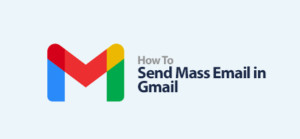With the widespread adoption of artificial intelligence (AI), brands leveraging email marketing to engage their audiences now have more and more chances to optimize their email campaigns and increase customer engagement.
However, while AI can be a real game changer in email marketing, only a few email marketers are taking advantage of its many applications.
Don't worry; we’ll update you on what you need to know. This article will explore artificial intelligence in email marketing, its benefits, and essential applications to improve your campaigns.
What Is Artificial Intelligence in Email Marketing?
If you have ever sent out a series of automated messages based on your audience’s actions, then you probably already know what artificial intelligence means in email marketing. Even if you didn't realize it, you were already using artificial intelligence in one way or another. These tools are everywhere, and when it comes to our subject of focus, they can help you conduct better email marketing with more engagement.
Take, for instance, a customer who signed up to your email list and is looking for more information about your products versus one who’s ready to make a purchase. With AI, you can automatically send personalized emails that meet each subscriber at their respective buyer stages. AI allows you to perform numerous email marketing-related tasks at scale, such as creating copy and subject lines and enhancing deliverability.
Today, technology is ready to alter the way we approach email marketing. Forward-thinking companies create email campaigns that combine sophisticated applications with human marketers.
5 Benefits of Using AI in Your Email Marketing
Here are some of the advantages you enjoy when you incorporate AI into your email marketing:
Personalized and relevant messages
When it comes to email marketing, personalization is critical. In other words, you want to deliver targeted and on-point messages that reach your subscribers at the right time. AI’s predictive analysis can help you learn customer preferences and generate messages using that data.
Netflix and Amazon use this to suggest TV series and items, respectively. After all, creating a set of data points that allow you to direct users to highly relevant products is an all-time effective marketing strategy. As an email marketer, you can use AI to personalize elements such as your email body, product recommendations, news updates, etc.
For instance, a tool like Lavender can help you personalize your outreach email introduction by showing the social network updates, funding news, tech stacks, job listings, and company information of your prospect, depending on their email address.
In addition, you can use AI to personalize the subject lines of your cold emails to encourage more openings and better responses. Since subject lines are the first thing email recipients see, getting them just right may make the difference between a successful campaign and one that fails.
Increased revenue
AI-powered email marketing solutions facilitate the creation of successful campaigns and reduce the cost of advertising.
For instance, artificial intelligence tools, like Optimail, can track subscriber behavior for hyper-personalization. In the same way, a tool like Drift Email can analyze subscriber email responses and take action on them.
These tools and more can make creating successful campaigns simpler, better, and faster by helping you understand your target audience and increasing open and click rates, leading to higher conversions and revenue.
Product personalization
In today's world, personalization is a potent weapon for inspiring individuals to act. Emails have a similar format. In other words, most subscribers will typically only read and click on an email if they feel it is personal.
Fortunately, AI can evaluate and forecast human behavior to the extent that it comprehends your clients' objectives. Marketers can therefore customize emails to the recipient's interests. This will increase the email's effectiveness.
These days, email marketing with artificial intelligence gives you access to many product personalization features. This includes locating prospective buyers based on information about their past purchases, geography, and other factors.
Consider a consumer who visits your website, examines one of your well-liked sweatshirts, and then leaves without making a purchase. The tracking pixel can retarget customers with targeted suggestions in a browser abandonment funnel, as it knows which products they have previously viewed.
Does that seem like a lot of work to you? It isn't. These processes happen automatically when you leverage AI.
Improved customer retention rates
With AI, you can keep in touch with your customers more effectively than ever before. Remember, maintaining an existing client is far simpler and less expensive than converting a new one.
Therefore, you should use AI to plan your email communications so your clients receive them frequently and ensure the content is relevant to optimize retention.
For instance, an email that reads, ‘We haven't heard from you in a while. Visit us!" is less personal and will most likely get ignored by your subscriber. Now, compare it to an email that reads:
"Hello, John. Since you haven't heard from us in some time, we wanted to ensure you knew of our most recent offer. You've been purchasing parts for a motorcycle, and now there's a new model that's 20% off! Come see for yourself."
That illustrates a message that satisfies a need and is more likely to entice a customer to return.
Streamlined marketing strategy
Incorporating artificial intelligence into your email marketing can help you improve and sharpen your marketing efforts. This way, you’re getting more returns on your marketing investments.
For instance, AI deep learning allows computers and systems to identify user behavior accurately.
In email marketing, your systems can more accurately pinpoint which recipient segments are more likely to convert into customers. As a result, you can specifically focus your marketing efforts on more probable leads without wasting time and other resources.
11 Applications of AI That Can Improve Your Email Marketing
Email personalization
Email personalization is a must-have when it comes to seeing results from your campaigns. As a matter of fact, 72% of customers state they will only interact with brands that use customized messages.
You've probably received a personalized email before. Email personalization makes firms stand out, from emails that use your name to greet you ("Hey, John!") to those that remind you about an item from a shopping basket you left unattended on an e-commerce site.
Since real-time behavioral personalization is the future for email marketing, AI tools can collect customer data that can allow you to create highly personalized emails. With the correct information, AI can evaluate client behavior and successfully enhance your email messages.
Besides, if you’re wondering how to avoid spam, email personalization is one way to do it.
By using AI to tailor campaigns, marketers can ensure their messages are relevant, compelling, and effective for the target audience.
List segmentation
To interact with customers, marketers have traditionally employed list segmentation. After all, statistics have shown that segmented marketing initiatives generate 14.31 percent more opens and over 100 percent more clicks than non-segmented campaigns.
However, segmentation is laborious and prone to human error. With AI, marketers can use more precise information, such as a customer's purchase history and preferences, to segment lists instead of just categorizing them by age or geography.
This makes it possible for marketers to send more tailored emails, raising crucial open rates and conversions. You should also integrate marketing project management software into your campaign so you can keep a bird’s-eye view of developments in real-time.
Crafting and testing compelling subject lines
By using AI to analyze vast amounts of customer data, you can personalize your email campaigns and increase the likelihood that your subscribers will open them.
One way to do this is to craft an appealing subject line, especially if you’re using an email outreach platform. Unfortunately, writing compelling email subject lines can take significant time and effort. Thankfully, AI tools simplify the procedure for you.
For instance, a tool like Tone Analyzer or Google Cloud Natural Language can help you gain insight into the tone, structure, and mood of your subject lines and receive suggestions for improvement.
Also, AI-enabled technologies, such as an AI writer or AI writing software, help you develop email subjects that are more likely to increase your open rates.
For example, you can utilize a tool like Email Subject Line Grader to gauge your email subject line's appeal. This tool assists you in evaluating the success of your email subject line and provides advice on increasing interaction.
In addition to improving email subject lines, AI-powered writing tools can also help you create compelling email content that resonates with your audience. These tools can analyze your target audience and suggest language and tone that will resonate with them. They can also help you optimize your emails' length, structure, and formatting to improve readability and engagement.
Furthermore, AI-powered email marketing tools can help you automate your email campaigns, making it easier to personalize your messages and send them at the right time. With these tools, you can segment your email list based on factors like demographics, behavior, and interests and create targeted campaigns that speak directly to each group. Incorporating AI into your email marketing strategy can help you save time, improve your open and click-through rates, and provide a better experience for your subscribers. As AI technology continues to evolve, it's likely that we'll see even more advanced tools and features that can help businesses achieve their email marketing goals.
Running multivariate tests
One of the most crucial aspects of email marketing is understanding the preferences of your target audience.
Multivariate tests allow you to go beyond simple A/B testing by testing many variables simultaneously.
Consider a scenario where you are getting set to introduce a new product feature and want to excite your audience. While you could test a single subject line or offer, multivariate testing allows you to examine several combinations simultaneously.
It could be like this:
- Email 1 (Subject 1) + (Offer 1)
- Email 2 (Subject 2) + (Offer 1)
- Email 3 (Subject 1) + (Offer 2)
- Email 4 (Subject 2) + (Offer 2)
With AI, you can automate this entire process and guarantee higher open rates, more clicks, and an engaged audience.
Understanding customer behavior/cycles
The amount of information AI can provide about consumers is one of its most valuable features for email marketers.
AI monitors what prospects are doing and determines where they spend most of their time, what they are genuinely interested in, and which products and services they are most likely to purchase. Each of your emails is then highly tailored to your customers' interests, thanks to the information provided by this data.
Imagine one of your loyal customers coming into your e-commerce storefront. They don't buy anything since the item they usually purchase is out of stock.
While automatic emails can simply notify them when such items are back in stock, incorporating AI ensures you send personalized emails, which shows that you notice and value your customers.
Automating copywriting
The best online marketing tools make your work easier. In the same way, an AI writing tool can automatically create content for you. This could entail creating fresh content or polishing already existing content.
By automating tedious activities and removing errors, AI writing tools save you time and money. Additionally, they reduce the chances of losing readers due to subpar writing.
In addition, you can rapidly and effectively create high-quality email content with these tools.
Not surprisingly, many businesses now employ AI writing tools to complete much of the work because doing it manually requires significant time and money. For instance, writing tools like Copymatic, Copy.AI, Persado, etc., can help you craft compelling headlines and short email copy.
Send time optimization
Another advantage of incorporating AI tools into your email marketing strategy is that they help determine the best time to send emails to each subscriber.
For instance, while several surveys have shown that users are likelier to open emails that enter their inboxes during the day than those they receive at night, people generally have different habits. As a result, there’s no one perfect approach to email send times.
In light of this, it's crucial to know when to schedule your emails to reach target audiences at the ideal moment, regardless of the recipients' locations or time zones. Thankfully, AI can help you achieve this. Send time optimization examines prior data to establish when customers most frequently open their inboxes. For instance, one customer might prefer opening their emails before breakfast, while others check during lunch breaks.
AI tools can assist you in effectively scheduling your emails and only delivering them at the appropriate moment for each user in this manner. Users will receive the email when they will most likely check their mailbox. Furthermore, email deliverability increases when email providers notice that many recipients engage with your content. This guarantees that your emails won't land in spam.
Cleaning up your email list
It takes time to sort through your email contacts manually. Artificial intelligence solutions can help you manage and optimize your email lists to ensure you have only active recipients. This way, your email service provider does not flag you for spamming.
AI-powered technologies clean up email databases by removing outdated contacts and automatically updating job titles, email addresses, contact information, and other details to improve email deliverability.
Customized email retargeting
By identifying different customers and delivering them emails that resonate, AI enables you to fine-tune your email retargeting approach. While some customers may buy a product immediately after reading your email, others may not act for a few days. AI can assist in this by retargeting emails at the most advantageous periods. To increase the value of your sales, you can also add algorithmically chosen products to your remarketing emails.
Predictive email engagement
Incorporating artificial intelligence in your email campaigns also means that you can leverage its predictive engagement feature to prioritize recipients who are more likely to engage with your emails. Users with lower engagement rates will receive such emails last.
Predictive email engagement not only ensures your emails get the high engagement they deserve, but it can also boost your open rate and deliverability rankings since the users who receive your emails first open and engage with them.
Analyzing performance data
Finally, it is not enough to run and launch email campaigns haphazardly. You should also be able to keep track of your success points and areas you need to improve upon. This is another point where AI technology shines.
The marketing industry at large faces a significant challenge regarding performance data analysis — there is just so much data to sift through. Current statistics show that internet users worldwide generate more than 1.1 trillion megabytes of data daily. Realistically, this is not a number humans can manage. Thankfully, AI does not have these limitations. More importantly, they can follow our lead.
AI tools can imitate the cognitive process of human brains. As a result, they can “learn” to recognize patterns, analyze the data, and generate conclusions. This means you can use AI to track and analyze the results of your email marketing campaign without having to deal with overwhelming data.
Final Thoughts
The email marketing industry has changed significantly over the past few years and has undoubtedly become more competitive. As a result, there is no better time than now to include AI in your email marketing plan. Otherwise, you risk falling behind the competition in your industry. Besides, incorporating AI in your email marketing can make your team more efficient and productive. So, why not?
By utilizing AI-enabled platforms and tools, you can start composing your emails and delivering them in a way that maximizes the likelihood that your target audience will receive, open, and engage with them.






